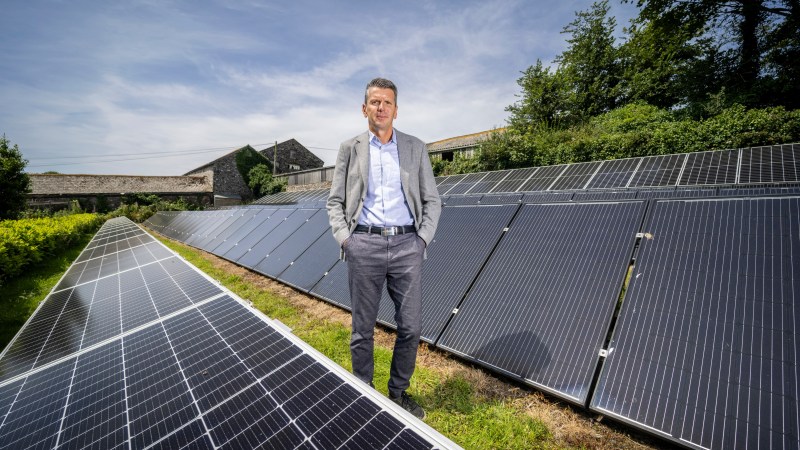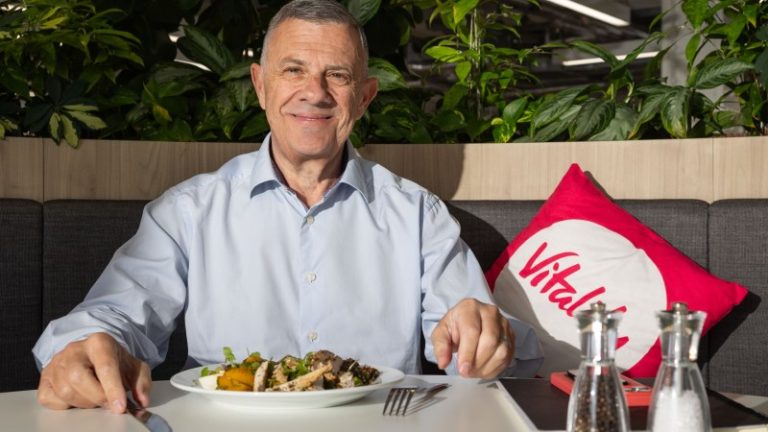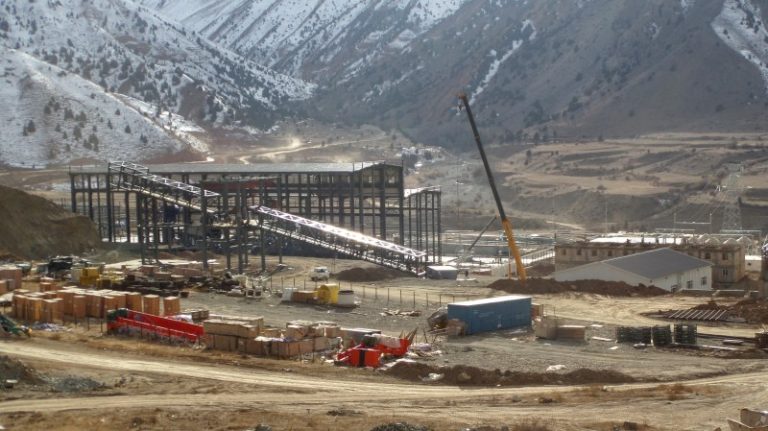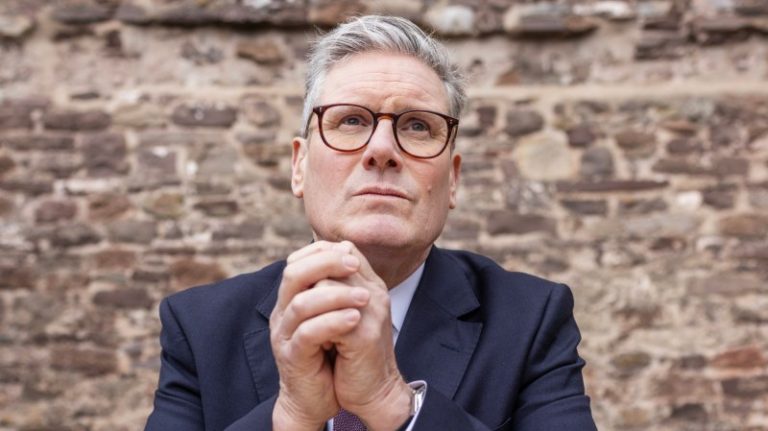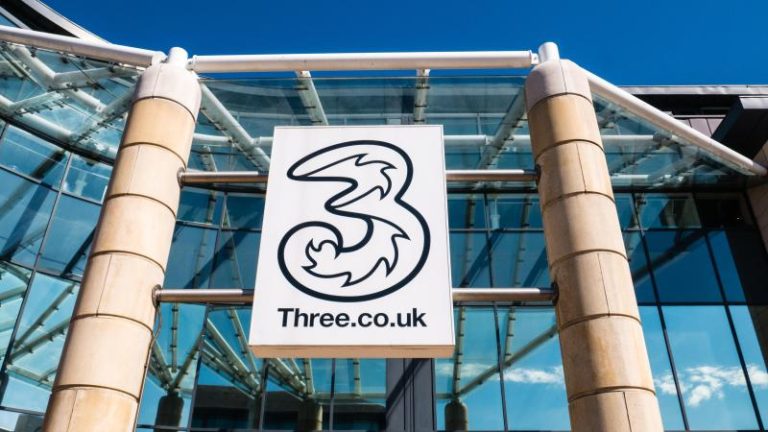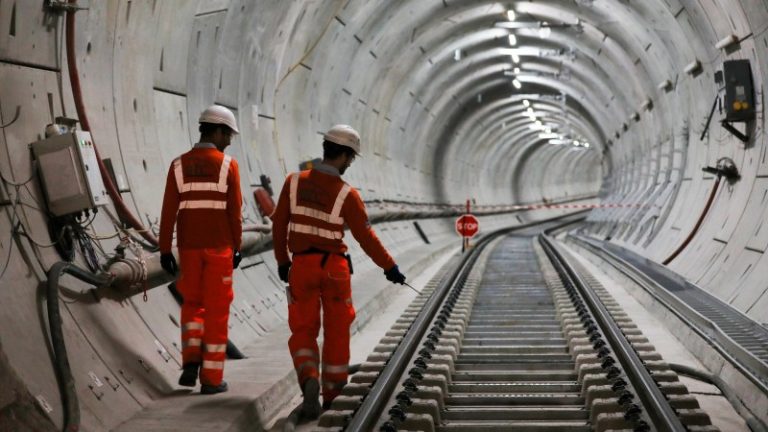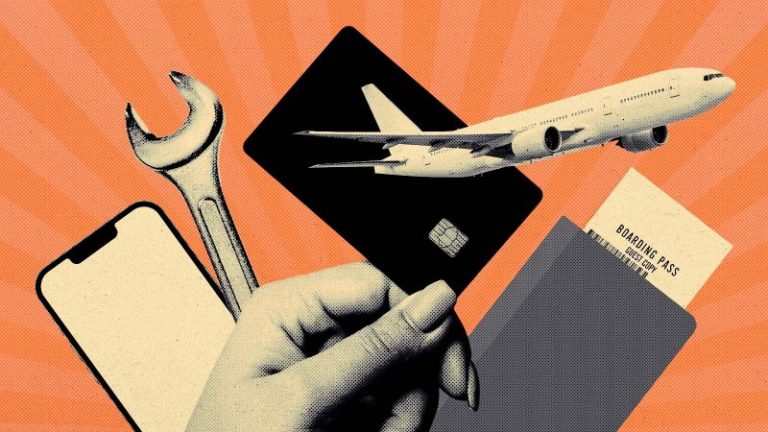I began renting offices, but solar power was a light-bulb moment
Steve Baker, 53, has run and owned several of the country’s fastest-growing businesses, as ranked in The Sunday Times. MLS Group, a UK-wide serviced office company, featured in 2005, followed by Ventia, a London-based firm in the same sector, in 2015. Most recently, Eden Sustainable, a solar power installer, has been a constituent of the Sunday Times 100 since 2022, with revenues of £13.5 million last year after annual sales growth of 123 per cent a year over three years.
What makes Baker keep coming back for more? Has he ever thought about just taking it easy? “I’ve always enjoyed growing businesses — the push and pull of the fun and the buzz, versus the stress,” he said from his home in Croyde, North Devon. And in fact, he did try: he moved to Devon 16 years ago with his family to “get out of the rat race”. That was after the rapid growth of the first company he ran, MLS, came to an abrupt halt when the financial crisis hit in 2008.
“It was a classic Noughties debt-backed business,” said Baker. The company was owned by Paul Williams, the serial entrepreneur who starred in Channel 4 series The Secret Millionaire. Baker was the UK managing director when the bank pulled its overdraft and MLS went into administration, leaving behind many angry tenants who were forced to find other premises.
Other serviced-office companies bought most of the centres run by MLS but Baker walked away with nothing, which was when he decided to make the move to Devon. He and Williams remain friends.
The start of Baker’s next business was unusual. He and his wife Susannah bought Pickwell Manor — a rundown manor house near Croyde — with their friends Tracey and Richard Elliott, and set about renovating it to divide it into separate holiday flats, with a wedding venue on the ground floor.
“We were friends, we were godparents to each others’ children, and it was that time in life when your kids are young, you work hard all week and at the weekends you’re just knackered,” said Baker. “We were all pretty disillusioned and wanted to make a change.”
Once the renovation project started, however, “we soon realised it was going to cost more than we had thought, and I decided the way I could add most value was to go to London and set up a serviced-office business”.
He started Ventia in 2009 with Dan Wheble and, heeding the lesson of MLS, they took on no debt at all. The pair started off signing management agreements with landlords and paid themselves and their small group of staff from the revenues. Within 18 months, they had contracts to manage five or six business centres in London, and began taking on leases only when their cashflow was strong enough to afford it.
They had launched the company at the height of the financial crisis, and that meant it was hard work finding companies to rent the office space. Yet landlords were also anxious about the future, and some were now sitting on empty properties. That made them more flexible about agreeing to shorter contracts or accepting smaller deposits, said Baker.
“I knew the business … and by making it work in a recession, I knew it would really accelerate once the market recovered,” he added.
Baker and Wheble sold Ventia to The Boutique Workplace Company for £14 million in 2015, with Wheble staying on as managing director.
Baker, though, already had another venture in mind. Along with his fellow co-owners at Pickwell Manor, he had become increasingly focused on doing good with some of the profits from both the hospitality business and Ventia. So he, his wife and the Elliotts set up a foundation that would focus on donating to two causes: projects to mitigate climate change, and helping people at risk of homelessness, including refugees, prison leavers and victims of domestic violence.
They also wanted to address the carbon footprint of their own businesses, which resulted in Baker starting to look at ways to offset the emissions from the serviced offices managed by Ventia. The partners decided to invest £2 million in solar power projects, with the effect of offsetting twice the level of Ventia’s emissions — but Baker also couldn’t help noticing that the project generated a 15 per cent rate of return, helped by government incentives available at the time for investment in renewables.
“I said we should turn it into a business, and that was how Eden was born,” said Baker. He set up the company in 2014 with Scott Burrows, a serial founder in the renewable energy sector since 2001. Customers now include the gym chain David Lloyd, pizza delivery company Domino’s, warehouse and data centre operator Iron Mountain, and the Oasis chain of academy schools.
For the first five years, though, growth was not rapid at Eden Sustainable. It was only when energy prices leapt, as the world economy recovered after the pandemic and then Russia invaded Ukraine, that companies could see a clear cost benefit in producing their own solar power on-site.
“The market was much tougher when it was mainly a heart decision rather than a head decision among companies that wanted to do their bit to combat climate change,” said Baker. “When energy prices went up, the savings were much greater and so their investment was repaid much sooner.”

About 50 per cent of the company’s customers buy the solar equipment, which is installed and maintained by Eden, and the other 50 per cent sign up to 25-year power-purchase agreements (PPAs) and pay a set fee in return for Eden funding the cost of the solar panels and installation. The company has access to a £75 million private debt fund with the lender Thrive Renewables to pay for the solar panels and associated energy storage systems.
Baker welcomed the new government’s commitment to stop using fossil fuels to generate electricity by 2030: “We’re optimistic that for the next five years the target for the industry will be clear, after so much chopping and changing over the past few years.”
However, he said that Eden’s focus for the next few years will be on increasing its profitability, rather than maintaining the rapid pace of growth seen over the past three years. The company expects sales to reach about £16.6 million in the year to the end of October, an increase of 23 per cent, with earnings before interest, taxes, depreciation and amortisation (Ebitda) of £220,000. It is considering raising capital to fund further expansion, with the intention of selling up in about five years.
Baker, his wife and the Elliotts are also considering selling Pickwell Manor, having repaid the money they borrowed to buy and refurbish it, to focus on their foundation and a social housing business they own, called Homemade. It owns 25 properties that are let to local councils in the southwest of England to house refugees from Syria, Afghanistan and Ukraine, as well as vulnerable people in the UK.
“I’m a vicar’s son and my wife grew up in a Baptist family, and Tracey and Richard share our sense of purpose — of what we’re in business for,” said Baker. “What’s held us together all this time has been our values.”
High Five
My hero … Patagonia founder Yvon Chouinard. He wrote a great book, Let My People Go Surfing: The Education of a Reluctant Businessman. The longevity of the outdoor clothing business, and its roots, are an inspiring story.
My best decision … In business, probably leaving MLS and moving to Devon, although it was scary at the time. Overall, my best decision has been my choice of life partner, my wife Susannah.
My worst decision … I can be very quick to make decisions and sometimes we’ve got involved in joint ventures without doing enough due diligence, and it hasn’t worked out because they weren’t the right people. Entrepreneurs often work off instinct, but sometimes you need to be a little bit more cautious and thoughtful.
Funniest moment … One of my co-directors and I were in a meeting and it wasn’t going well. He stood up and said “right, we’re leaving”, and strode to the door to walk out with me following him. Unfortunately, the door he opened was actually a cupboard. We had to back out of it sheepishly and leave again by the correct door.
Best business tip … You need to have good people in the boat with you. Trying to be the big “I am” and do it all on your own is a recipe for difficulty. Having two or three really good people around you who you trust makes a massive difference to your levels of stress.
